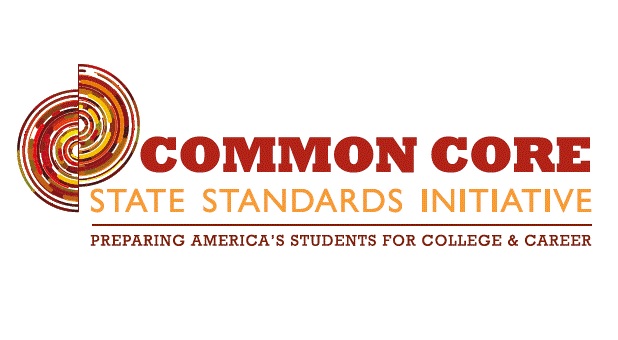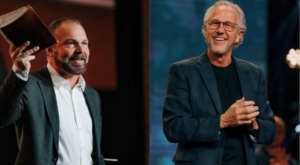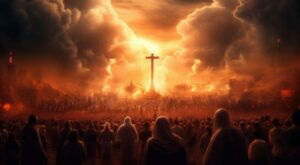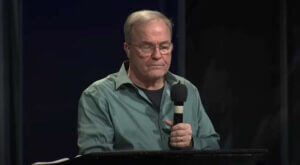Of the Presbyterian theologian J. Gresham Machen (1881–1937), Pulitzer Prize-winning novelist and Nobel laureate Pearl S. Buck declared:
The man was admirable. He never gave in one inch to anyone. He never bowed his head. It was not in him to trim or compromise, to accept any peace that was less than triumph. He was a glorious enemy because he was completely open and direct in his angers and hatreds. He stood for something and everyone knew what it was.
Lest you be tempted to dismiss Buck’s praise as predictably biased because, after all, she was raised by Presbyterian missionaries living in China, consider the view of H.L. Mencken.
Mencken was known for his caustic criticisms of Christians in general and ministers in particular. He described the Creator as “a comedian whose audience is afraid to laugh” and once wrote, “Shave a gorilla and it would be almost impossible, at twenty paces, to distinguish him from a heavyweight champion of the world. Skin a chimpanzee, and it would take an autopsy to prove he was not a theologian.”
And yet, Mencken pronounced great admiration for Machen:
Dr. Machen is surely no mere soap-boxer of God, alarming bucolic sinners for a percentage of the plate. On the contrary, he is a man of great learning…. His moral advantage over his Modernist adversaries, like his logical advantage, is immense and obvious. He faces the onslaught of the Higher Criticism without flinching, and he yields nothing of his faith to expediency or decorum.
When Machen died, Mencken compared him to another prominent Presbyterian, politician William Jennings Bryan, with these words: “Dr. Machen was to Bryan as the Matterhorn is to a wart.”
I present Machen as a “real hero” not because he best represents my personal perspective on Christ, the Bible, and Christianity — though I enthusiastically admit that he does — but rather because he exhibited a remarkable degree of courage and logical consistency that I wish were far more common within Christian leadership. His convictions were deep and thoroughly reasoned. He expressed them in the face of powerful opposition. When he hit a brick wall, he didn’t retreat to his sitting room; instead, he created opposing and influential institutions. He saw liberty as God’s intention for humanity and would not abide the presumptuous claims of earthly governments to diminish it for our own good. This was a man confidently, persuasively, and fearlessly principled.
Machen was born in Baltimore in 1881 to an Episcopalian father, but it was his Presbyterian mother who exerted the greater influence. By the time Machen enrolled as an undergraduate classics major at Johns Hopkins University, he was Presbyterian to the core. Having distinguished himself as a first-rate scholar at Hopkins, he went on to Princeton, where he focused on theology at the seminary and philosophy at the university. After a year at a German university, he returned to America resolved to defend conservative Reformed theology against the growing influence of the modernists, the theological wing of the “progressive” movement that watered down traditional Christian beliefs and elevated such dubious notions as moral relativism and activist government.
Princeton Seminary was Machen’s home base for 23 years, from the day in 1906 when he began as a New Testament instructor until his conscience led him to break with the school in 1929. The president of Princeton University during Machen’s first four years at the seminary was Woodrow Wilson, who became a close family friend. That friendship, however, did not prevent Machen from later speaking out against Wilson’s agenda as president of the United States.
The young theologian steadfastly opposed US involvement in World War I and condemned the subsequent Versailles Treaty as “an attack on international peace” that would produce war after war “in a wearisome progression.” He deemed Wilson’s overseas interventions as naïve, starry-eyed adventurism. He denounced conscription, arguing that the draft was an assault on freedom and a “brutal interference” with the individual and with family life.
In the early 1900s, the progressive ideology infecting the social sciences was poisoning the nation’s seminaries, too, and Princeton was no exception. Machen was more than a worthy antagonist to the religious left. It wouldn’t be correct to consider him a theological “fundamentalist” because he was too scholarly for that; by comparison, fundamentalism was often anti-intellectual, while Machen was a deeply intellectual Christian. He appreciated science as a tool for unraveling the mysteries of an ordered and logical universe. His best-known books were systematic and thorough defenses of Christianity (for example, The Origin of Paul’s Religion and What Is Faith?) and devastating critiques of modernist revisionism (e.g., Christianity and Liberalism) that remain influential nearly a century later.
Machen butted heads with Princeton’s increasingly leftist faculty until he’d had enough. In 1929, he resigned from the university. Rather than seek employment at another established school, he started his own — Westminster Theological Seminary near Philadelphia — and put it on a path to international fame as one of the most rigorous and respected theological institutions in the world.
In 1933, Machen’s simmering concern about religious progressivism (or “liberalism,” as he generally termed it) in the Presbyterian mission field prompted him to form the Independent Board for Presbyterian Foreign Missions. The move led the mainline Presbyterian Church to excommunicate him, so in 1936 he created what later became known as the Orthodox Presbyterian Church. He was, in many ways, a Presbyterian Martin Luther — a man who boldly challenged the intellectual corruption of the very church that had become a central part of his own life.
Machen didn’t much care for politics. He saw it as inherently stifling and anti-individual. The idea that true Christianity was to even a small degree compatible with any form of statism — socialism, communism, or fascism — was, to Machen, a dangerous fiction. (His views influenced my own perspective, reflected in my essay Rendering Unto Caesar: Was Jesus a Socialist?)
Historian George Marsden, in his 1991 book Understanding Fundamentalism and Evangelicalism, labels Machen’s political views as “radical libertarian” because he “opposed almost any extension of state power.” I think Machen himself might have been happy with the description, but he would have seen it as a natural extension of the teachings of Christ, who advocated character building and spiritual renewal and not state power.
When a proposed child labor amendment to the Constitution grabbed headlines in the 1920s, Machen slammed it as “one of the most cruel and heartless measures that have ever been proposed in the name of philanthropy.” He understood the economics of a measure outlawing any employment for children under the age of 18: it would either drive child labor underground and into deplorable conditions or it would relegate poor families to even greater poverty. More important to Machen was what the amendment represented: a usurpation by federal power of a matter more properly left to the states, localities, and families.
At a time when the overwhelming majority of Presbyterians supported alcohol prohibition, Machen fought it. Scripture cautions against inebriation, he argued, but nowhere does it suggest government coercion as the solution.
He objected to Bible reading and prayer in public schools because they mixed politics with faith; Christians, he said, should form their own schools. He believed it was foolish to think that government would be anything but a soul-crushing, collectivist mediocrity in the classroom:
Place the lives of children in their formative years, despite the convictions of their parents, under the intimate control of experts appointed by the state, force them to attend schools where the higher aspirations of humanity are crushed out, and where the mind is filled with the materialism of the day, and it is difficult to see how even the remnants of liberty can subsist.
In 1979, President Jimmy Carter signed the bill that cursed the country with the US Department of Education. If Carter, a Sunday school teacher, had read Machen’s warnings from more than a half-century earlier, he might have avoided that colossal mistake. In 1926, Machen testified in Congress against a proposal to create such a federal department. His remarks, positively prophetic in light of more recent history, deserve an extensive excerpting here:
The department of education … is to promote uniformity in education. That uniformity in education under central control it seems to me is the worst fate into which any country can fall….
It is to be opposed … because it represents a tendency which is no new thing, but has been in the world for at least 2,300 years, which seems to be opposed to the whole principle of liberty for which our country stands. It is the notion that education is an affair essentially of the State; that the children of the State must be educated for the benefit of the State; that idiosyncrasies should be avoided, and the State should devise that method of education which will best promote the welfare of the State….
The principle of this bill, and the principle of all the advocates of it, is that standardization in education is a good thing. I do not think a person can read the literature of advocates of measures of this sort without seeing that that is taken almost without argument as a matter of course, that standardization in education is a good thing. Now, I am perfectly ready to admit that standardization in some spheres is a good thing. It is a good thing in the making of Ford cars; but just because it is a good thing in the making of Ford cars it is a bad thing in the making of human beings, for the reason that a Ford car is a machine and a human being is a person. But a great many educators today deny the distinction between the two, and that is the gist of the whole matter….
I do not believe that the personal, free, individual character of education can be preserved when you have a Federal department laying down standards of education which become more or less mandatory to the whole country….
I believe that in the sphere of the mind we should have absolutely unlimited competition…. A public education that is not faced by such competition of private schools is one of the deadliest enemies to liberty that has ever been devised…. I think that when it comes to the training of human beings, you have to be a great deal more careful than you do in other spheres about preservation of the right of individual liberty and the principle of individual responsibility; and I think we ought to be plain about this — that unless we preserve the principles of liberty in this department there is no use in trying to preserve them anywhere else. If you give the bureaucrats the children, you might as well give them everything else as well.
In December 1936, Machen traveled to North Dakota for several speaking engagements. In the exceptional cold, he contracted pleurisy, which then developed into pneumonia. He died on New Year’s Day, 1937. He was only 55.
Machen is buried in a cemetery in his hometown of Baltimore, where the modest stone over his grave declares simply his name, degree, dates, and the phrase, “Faithful unto Death,” in Greek.
For further information, see:
- Daniel Walker’s “J. Gresham Machen: A Forgotten Libertarian“
- Machen’s testimony before Congress regarding a federal department of education
- Stephen J. Nichols’s biography, J. Gresham Machen: A Guided Tour of His Life and Thought
- D.G. Hart’s biography, Defending the Faith: J. Gresham Machen and the Crisis of Conservative Protestantism in Modern America
Lawrence W. (“Larry”) Reed became president of FEE in 2008 after serving as chairman of its board of trustees in the 1990s and both writing and speaking for FEE since the late 1970s.
This article was originally published by the Foundation for Economic Education (FEE).
See an error in this article?
To contact us or to submit an article



















